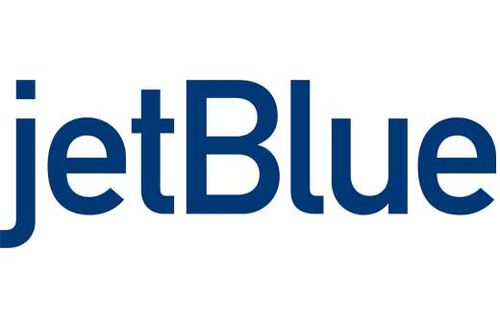Where travel agents earn, learn and save!
News / JetBlue celebrates Earth Month by announcing meaningful, short-term actions to advance decarbonization efforts and benefit its communities
JetBlue sets ambitious and comprehensive ESG targets, focuses on achieving net zero carbon emissions by 2040

April 5 - JetBlue announced an ambitious and comprehensive set of short and medium term ESG targets to achieve net zero carbon emissions for its airline operations by 2040, increase usage of renewable energy, significantly increase diverse representation in its leadership ranks, hold business partners accountable for sustainable business practices, and more. This Earth Month, JetBlue is accelerating its commitment to take critical and measurable steps toward reducing its contribution to climate change.
JetBlue views robust oversight of key ESG issues as good for business and in generating long-term value, and recognizes that customers expect clean, efficient, and affordable travel. That’s why JetBlue is helping lead the path in sustainable aviation. In 2020, JetBlue became the first U.S. airline to achieve carbon neutrality for all domestic flying, today primarily through carbon offsets while the industry builds up lower-carbon technologies to reduce direct emissions.
While ESG is part of JetBlue’s business strategy, programs encouraging individuals to lessen their environmental impact remain a pillar of JetBlue For Good, the airline’s platform for social impact and corporate responsibility. Each April, JetBlue hosts its annual GreenUp campaign dedicated to bettering the communities it serves and help create a cleaner earth for future generations. This Earth Month, JetBlue is partnering with EARTHDAY.ORG, whose mission is to diversify, educate and activate the environmental movement worldwide, for the Great Global Cleanup highlighting volunteer opportunities throughout the airline’s network.
JetBlue Launches New ESG Targets
EnvironmentalCarbon neutrality is just one way JetBlue is preparing for a changing climate and ensuring a more sustainable business for its crewmembers, customers, shareholders and communities. JetBlue’s carbon reduction efforts focuses on decreasing emissions through fuel-efficient operations, aircraft, and usage of sustainable aviation fuels. JetBlue is setting clear targets to chart a path toward net zero.
Reduce emissions with carbon offsets:
• Achieve net zero carbon emissions by 2040, including carbon offsets
Reduce direct emissions:
• Decrease aircraft emissions 25 percent per available seat mile (ASM) by 2030 from 2015 levels, excluding offsets
Increase usage of sustainable energy:
• Convert 10 percent of total jet fuel to be from blended sustainable aviation fuel (SAF) by 2030 • Convert 40 percent of three main ground service equipment vehicle types to electric by 2025 and 50 percent by 2030
Reduce waste:
• Eliminate single use plastics within service ware where possible. Where not possible, ensure plastic is recyclable • Maintain at least an 80 percent recycling rate for audited domestic flights
Social
Crewmember feedback and societal demands were part of the impetus for JetBlue to reexamine its relationships with crewmembers, business partners, customers, and the communities it serves. This included an evolution of its diversity, equity and inclusion (DEI) strategy, which now concentrates on three areas: people, sourcing and brand.
This year JetBlue’s senior leaders tied to their 2021-2023 long-term incentive plan (LTIP) compensation to key ESG metrics. An ESG Index was developed that measures leadership payouts based on percent reduction in company emissions per ASM, volume of sustainable aviation fuel used, spend toward underrepresented business partners, long-term efforts to engage and work with minority and women owned businesses (MWBE), and a more diverse slate of officers and directors.
Leadership diversity:
• Double race and ethnic minority representation at the officer and director level, from 12.5 percent today to 25 percent by the end of 2025 • Increase representation of women at the officer and director level, from 32 percent today to 40 percent by the end of 2025
Business partner engagement:
• Engage with 80 percent of top active business partners by spend on ESG principles within JetBlue’s Business Partner Code of Conduct by 2023
Governance
Oversight of material ESG risks and opportunities at JetBlue starts with its board of directors. In 2020, JetBlue’s board established a dedicated ESG subcommittee to manage and address key environmental and social issues, including identifying, monitoring, and mitigating climate-related risks and opportunities.
Board ESG Oversight:
• An ESG subcommittee of the Board, consisting of at least 3 members, meets 3 times a year by 2021 • Board-level accountability and areas of ESG oversight published by 2021
Board ESG Fluency:
• Integrate ESG and DEI into Board member selection process by 2021
Executive Compensation:
• Establish ESG goals tied to senior leadership compensation by 2021
More Travel News:
American Airlines statement on Texas Voting Legislation
Cancun and Riviera Maya tourists must abide with health protocols as officials add extra sanitary filters
AMResorts updates Travel Agents about a new Tourist Tax in Quintana Roo for international tourists
SECURITY NEED: Prevention protocols and Covid detection test at Viva Wyndham Resorts











